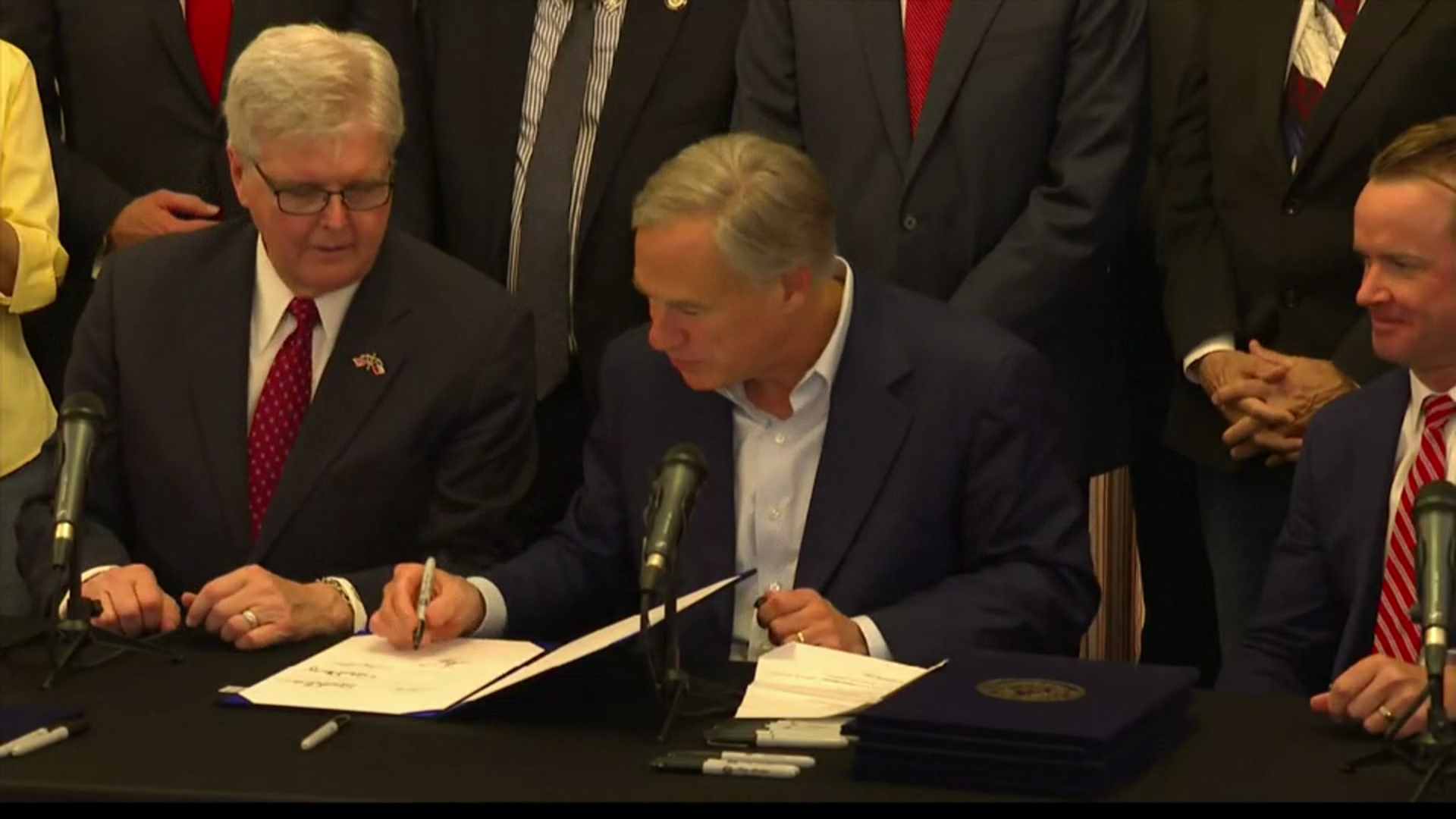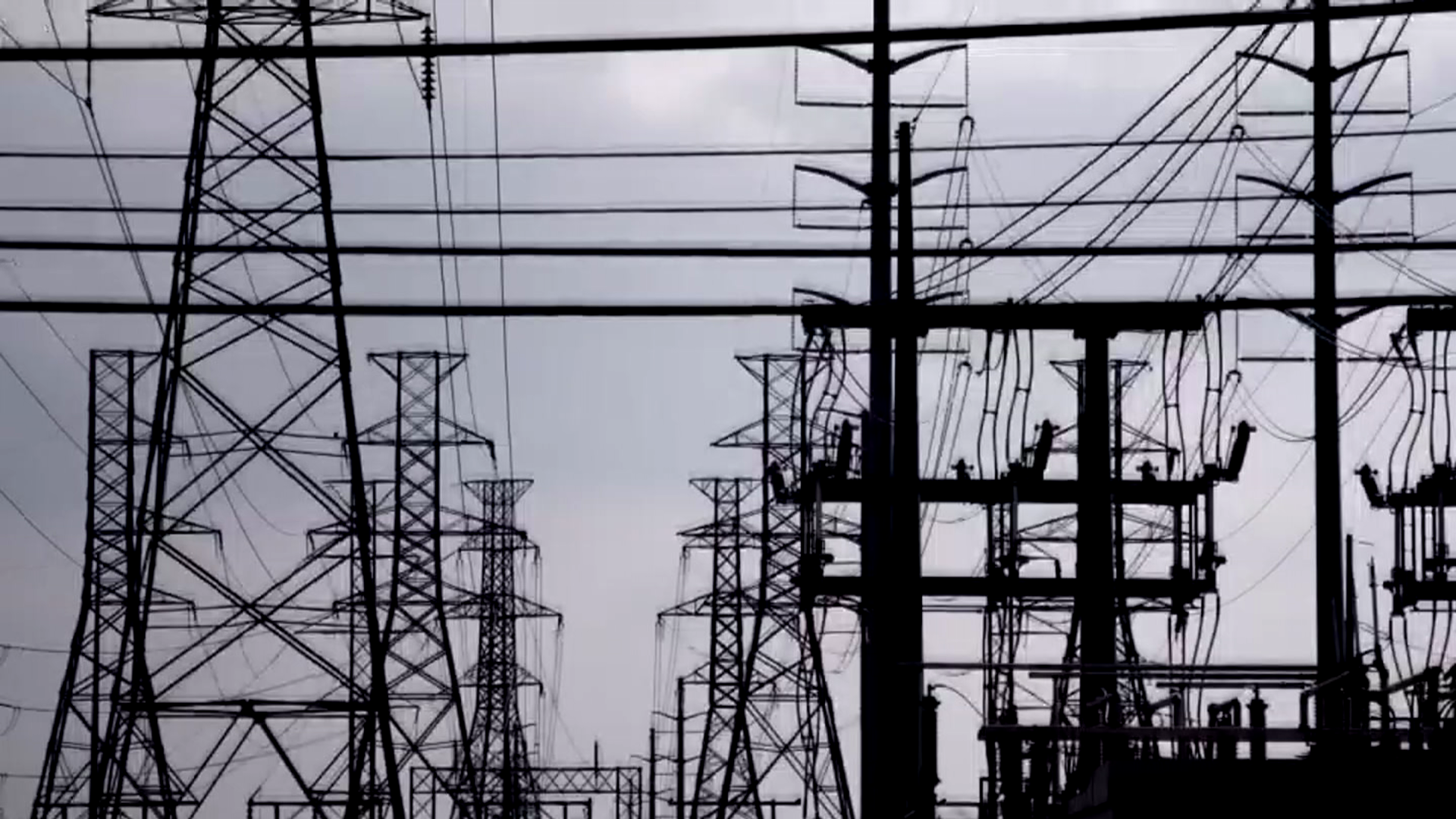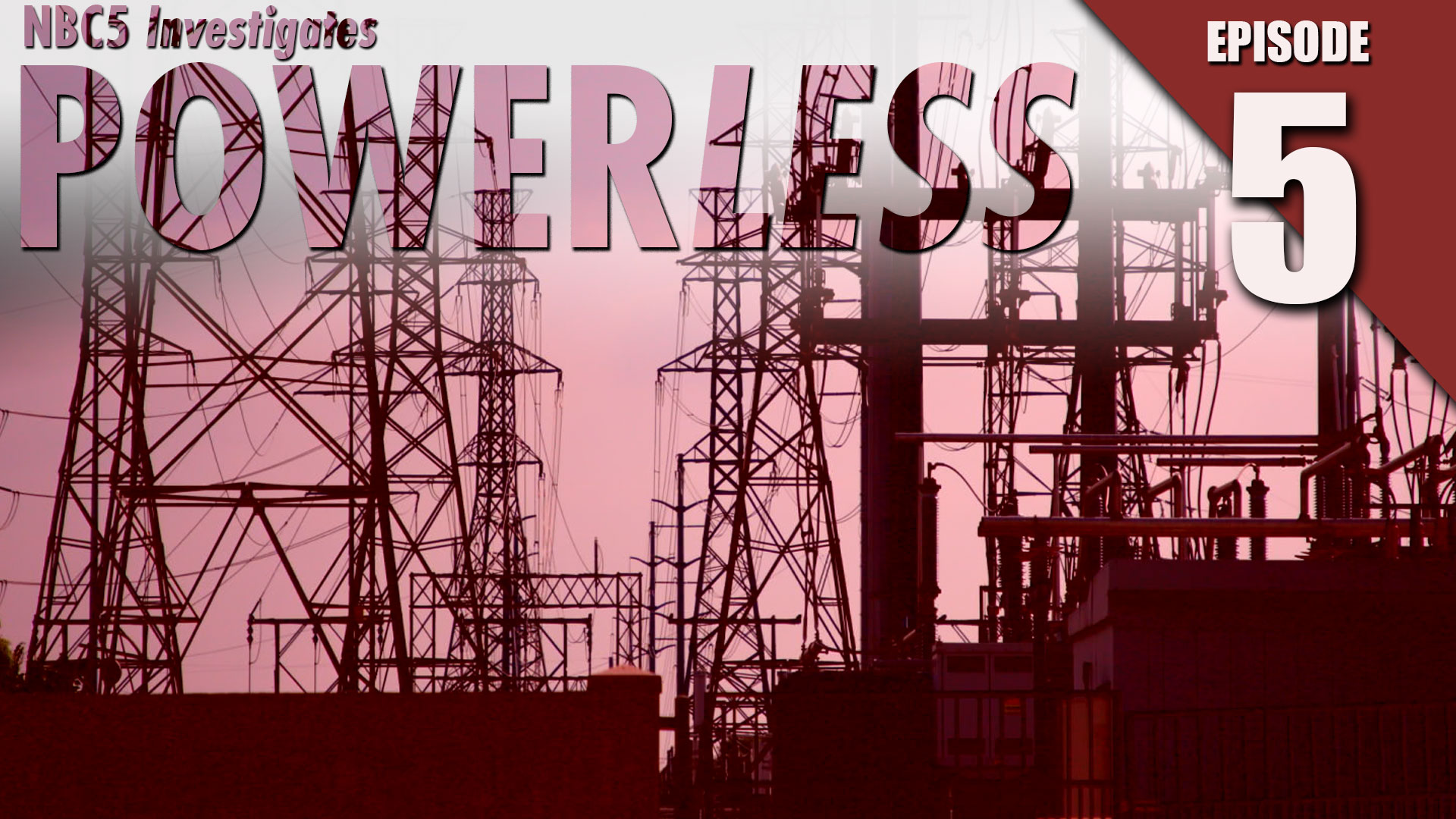What to Know
- The special legislative session begins this week and will run for up to 30 days. The governor can call as many special sessions as he wants.
- The list of priorities for the legislative session is set by the governor.
- Abbott said in May legislators will be instructed to tackle one item at a time before moving on to another.
Texas Gov. Greg Abbott (R) revealed his list of priorities Wednesday for the upcoming special legislative session. As expected, the list includes election integrity and border security among 11 items to be settled by legislators, but there is no requirement that legislators do more to strengthen the power grid even after the governor on Tuesday demanded the Texas Public Utilities Commission take aggressive action to improve electricity reliability.
The governor announced the items on his website and on Twitter just after 9 a.m. Wednesday saying the regular legislative session "was a monumental success for the people of Texas," but that there was "unfinished business."
Abbott outlined 11 priorities for the session that he said: "put the people of Texas first and will keep our state on a path to prosperity."
Get top local stories in DFW delivered to you every morning. Sign up for NBC DFW's News Headlines newsletter.
"Two of my emergency items, along with other important legislation, did not make it to my desk during the regular session, and we have a responsibility to finish the job on behalf of all Texans," Abbott said in a statement. "I look forward to working with my partners in the Legislature to pass this legislation as we build a brighter future for all who call Texas home."
Special Session
The governor said in May that he will only give legislators one item at a time and that once they pass that item they'll receive another.
"First, the only things I'll be putting on there are things I want to see passed. Second, we're going to go one item at a time. There will be one item placed upon the agenda. Not until they passed that item will we move on to another item," Abbott said in May.
Special Session agenda items will include:
- BAIL REFORM: Legislation reforming the bail system in Texas to protect the public from accused criminals who may be released on bail.
- ELECTION INTEGRITY: Legislation strengthening the integrity of elections in Texas.
- BORDER SECURITY: Legislation providing funding to support law-enforcement agencies, counties, and other strategies as part of Texas’ comprehensive border security plan.
- SOCIAL MEDIA CENSORSHIP: Legislation safeguarding the freedom of speech by protecting social-media users from being censored by social media companies based on the user’s expressed viewpoints, including by providing a legal remedy for those wrongfully excluded from a platform.
- ARTICLE X FUNDING: Legislation providing appropriations to the Legislature and legislative agencies in Article X of the General Appropriations Act.
- FAMILY VIOLENCE PREVENTION: Legislation similar to Senate Bill 1109 from the 87th Legislature, Regular Session, requiring schools to provide appropriate education to middle- and high-school students about dating violence, domestic violence, and child abuse, but that recognizes the right of parents to opt their children out of the instruction.
- YOUTH SPORTS: Legislation identical to Senate Bill 29 as passed by the Texas Senate in the 87th Legislature, Regular Session, disallowing a student from competing in University Interscholastic League athletic competitions designated for the sex opposite to the student’s sex at birth.
- ABORTION-INDUCING DRUGS: Legislation similar to Senate Bill 394 from the 87th Legislature, Regular Session, which prohibits people from providing abortion-inducing drugs by mail or delivery service, strengthens the laws applicable to the reporting of abortions and abortion complications, and ensures that no abortion-inducing drugs are provided unless there is voluntary and informed consent.
- THIRTEENTH CHECK: Legislation similar to House Bill 3507 from the 87th Legislature, Regular Session, relating to a “thirteenth check” or one-time supplemental payment of benefits under the Teacher Retirement System of Texas.
- CRITICAL RACE THEORY: Legislation similar to House Bill 3979 concerning critical race theory as originally passed by the Texas Senate in the 87th Legislature, Regular Session.
- APPROPRIATIONS: Legislation providing appropriations from additional available general revenue for the following purposes:
- property-tax relief;
- enhanced protection for the safety of children in Texas’ foster-care system by attracting and retaining private providers for the system; and
- to better safeguard the state from potential cybersecurity threats.
The debate surrounding election laws will be one of the most closely watched.
State House Democrats staged a walkout to prevent a vote on the contentious issue at the end of the legislative session.
Now as the Governor calls them back, Republican Senator Bryan Hughes said it's the right move.
“There’s been a big national debate about election stuff and attempts to draw us into that. But this bill is about Texas elections, making sure they work well, making sure they’re open and honest for everyone," said Hughes.
But on the other side of the aisle, DeSoto's Representative Carl Sherman said his party's not done fighting.
"This to me is a bill that doesn’t protect voting rights. It erodes voting rights and steals voting rights. And my constituents were concerned, and we had to whatever it takes and fight for the Texans’ ability to participate in our democracy," said Sherman.
This time around, he's hopeful they can do so through compromise.
"I believe that anytime you are trying to battle for folks who are trying to meddle into our democracy, you have to be willing to do what it takes. However, at the same time, I don’t think you can win by doing the same play over and over," said Sherman.
Hughes simply hopes they keep the debate to the floor.
“We were elected and we have to do a job. That means we stand here and fight. We debate things. Sometimes we win and sometimes we lose, but we stand and fight, and the majority rules," said Hughes.
None of the items listed by the governor were related to ERCOT or the Texas power grid. However, several laws related to the February energy crisis were passed and signed by the governor during the regular session, including overhauling the ERCOT board of directors, strengthened power plant weatherization requirements, and improving communication between ERCOT, the media and the public.
Still, more was needed to be done about the grid, Abbott said Tuesday, and one month after he declared the grid fixed he ordered the Public Utilities Commission to take aggressive action to incentivize the development and maintenance of additional non-renewable energy sources.
Texas' Power Grid
Abbott also directed the PUC to require solar- and wind-powered generators to compensate customers for the cost of their unavailability; instruct ERCOT to establish a maintenance schedule for gas, coal and nuclear electric generating plants; and order ERCOT to accelerate the development of transmission projects to improve connectivity between existing and new power plants and areas needing power.
The special session begins Thursday, July 8, at 10 a.m. and can run for 30 days. The governor also said in May he would continue to call special sessions as long as it takes so that the bills he wants to see passed get passed.
Click here to listen to the latest episode of the Lone Star Politics Podcast.





